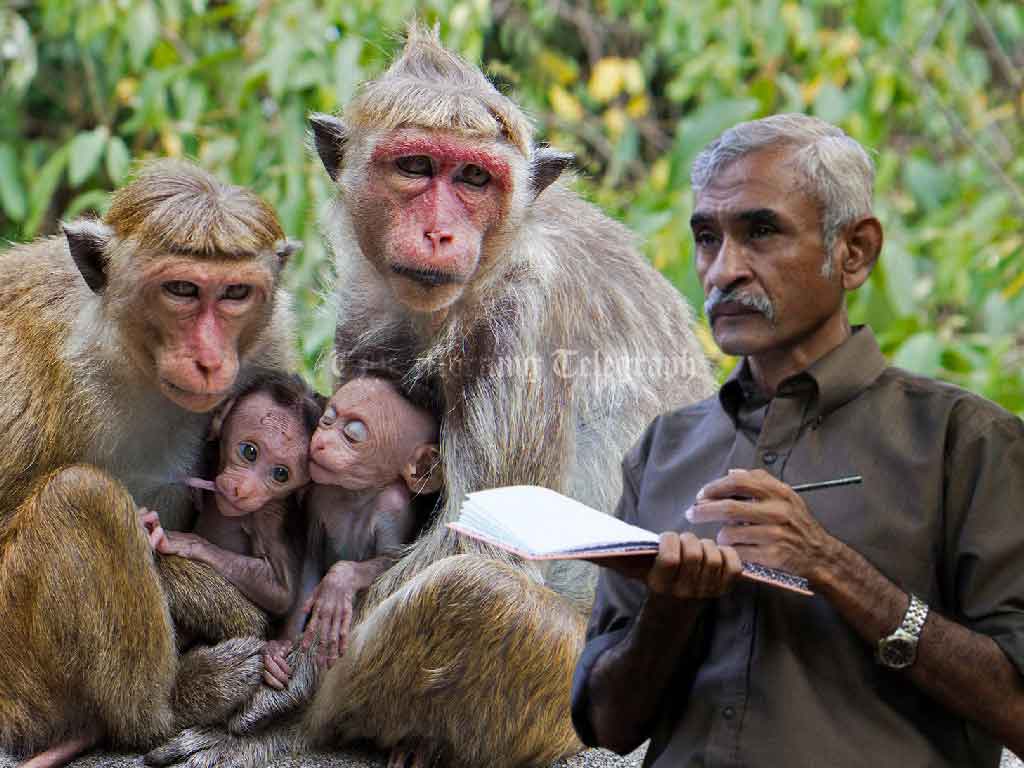
The Toque Macaque, a species often seen across Sri Lanka, is among the five mammals not legally protected under the country’s Fauna and Flora Protection Ordinance, according to veteran environmentalist Dr. Jagath Gunawardena. Farmers are legally permitted to take measures to protect their crops from these animals, which are considered pests for their destructive impact on agriculture, including coconut cultivation.
Dr. Gunawardena clarified that the Toque Macaque, along with the grey monkey, wild boar, black-necked hare, and langur, falls under Section 30 of the ordinance, which excludes them from legal protection. Farmers, therefore, have the right to manage these animals if they encroach on their land.
The issue has sparked controversy, with some alleging that environmentalists are obstructing farmers from addressing the macaque population. Dr. Gunawardena refuted these claims, emphasizing that environmentalists have never opposed farmers taking action to safeguard their crops from these unprotected species.
He also highlighted concerns over the illegal killing of protected animals, such as elephants, suggesting that focusing on macaques might be a diversion from more pressing conservation issues. “Elephant poaching has become a significant problem, and now monkeys are being brought into the spotlight as a distraction,” he said.
Although the Toque Macaque is not protected under Sri Lankan law, it is listed on the IUCN Red List and enjoys international protection under CITES Appendix II. This dual status has fueled debates about how to balance agricultural interests with conservation concerns.
Dr. Gunawardena urged for a nuanced approach, ensuring that while farmers are supported in protecting their livelihoods, broader conservation efforts for Sri Lanka’s wildlife are not undermined.




